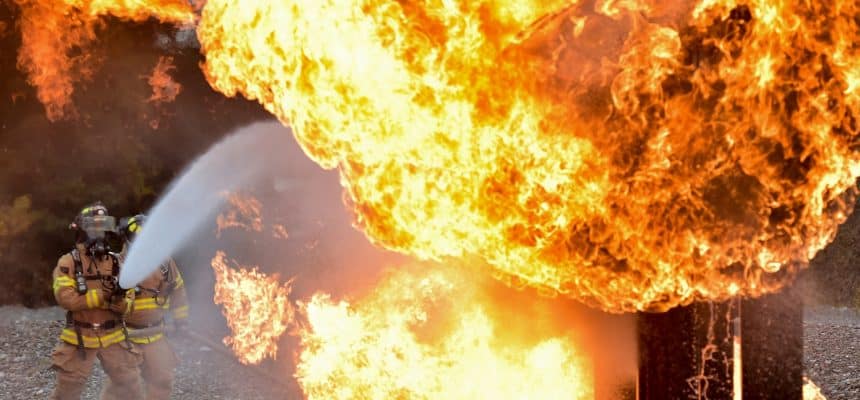Firefighters are our heroes.
![]()
However, recent reports have shown that firefighters face more risks than what we are aware of. Blood tests conducted by Airservices Australia showed that aviation firemen have up to 20 times the normal amount of toxic chemical in their body. These chemicals are found to be Per- and Polyfluoroalkyl Substances (PFAS) which are considered by health experts as the new asbestos disaster. Exposure to PFAS can cause health conditions like kidney problems, lower birth weights, high cholesterol level, among others.
The PFAS contamination stemmed from the firefighting foams used by Australian airports that contain PFAS chemicals. However, experts say that this problem is not limited to airports alone and that some large manufacturing and industrial sites are also likely to be contaminated.
Although firefighting foams have been discontinued since 2010, firefighters are still at risk of being exposed to these chemicals when fires happen. Aside from PFAS, Firefighters are also being exposed to other toxic chemicals including carcinogens, Perfluorooctane Sulfonate (PFOS), Perfluorohexane sulfonate (PFHxS), Perfluorooctanoic acid (PFOA), etc.
Most of the time, firefighters are not even aware of the hazards brought about by toxic fumes. According to a study conducted by the University of Ottawa, these chemicals are mostly absorbed through the skin than by inhalation.
Therefore, the best way to protect our firefighters is by protecting properties from fire. The less fire they have to put out, the lesser the risk of their exposure to toxic chemicals.
Preventing fires from happening is probably the best solution every one of us can do.
Here are some of the steps we can do to prevent fire from breaking out:
![]()
- Do not put flammable materials and heat sources near stuff that can easily catch fire — cloth, curtain, paper, plastic, etc.
- Check your appliances/machines for frayed cords.
- Don’t overload your circuits.
- Turn off electrical appliances at the end of each day.
- Don’t leave open flames unattended.
- Always have a fire extinguisher in the kitchen or pantry.
- Keep your place free of waste paper, trash and other items that can easily catch fire.
- Have a fire alarm installed and make sure it is working when you need.
- Have your fire department’s number on speed dial.
By simply putting out candles, checking electrical wires and installing fire protection devices, we are not only protecting ourselves but also the people who are protecting us.
